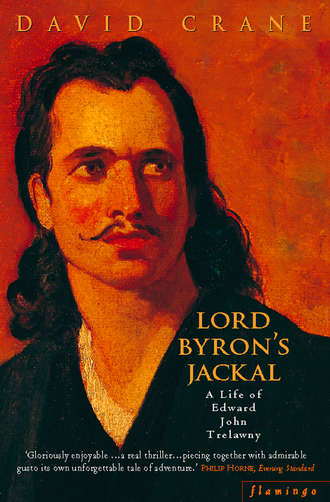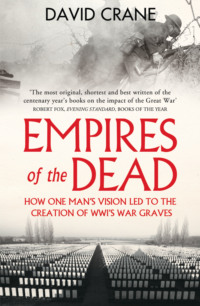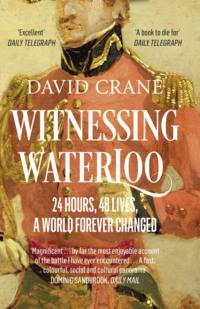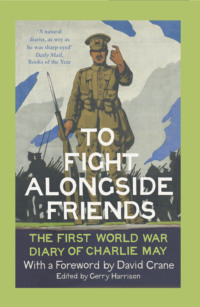
Полная версия
Lord Byron’s Jackal: A Life of Trelawny
Byron was never one to need much encouragement towards parsimony, but it was not now just his own money that was at stake. After an initial coolness in Britain to the fate of Greece, there were moves afoot in London to raise a Stock Exchange loan on her behalf, and as the sole agent of the London Greek Committee on the spot Byron had to take this into account. It made him move with a caution that other Philhellenes would have done well to emulate. He was not going to budge a foot farther until he could see his way, he told Trelawny, and to the Greeks he was equally firm. ‘And allow me to add once for all,’ he addressed their government in a letter,
I desire the well-being of Greece, and nothing else; I will do all I can to secure it; but I cannot consent, I never will consent that the English public, or English individuals, should be deceived as to the real state of affairs. The rest, gentlemen, depends on you: you have fought gloriously; act honourably towards your fellow-citizens, and towards the world; then it will no more be said, as it has been said for two thousand years, with the Roman historian, that Philopoeman was the last Grecian.7
The vigour and propriety of every action of Byron’s in these dealings with the Greek parties makes an extraordinary contrast with the indolent rhythms of his Italian life. There were certainly times on Cephalonia when the seeming hopelessness of his task made him wish that he had never come, and yet in spite of all the disappointments the truth is that he had not felt so alive and decisive in years, writing letters and meeting visiting Greeks, arranging or parrying loans, assessing military reports and projects for steam vessels, or playing the strategist with the English Representative and future conqueror of Sind, Colonel Napier.
He was also working to a strict regime preserved in the account of Pietro Gamba, Teresa Guiccioli’s brother. He would leave his bedroom at nine, and for the next two hours would deal with his correspondence, with Gamba to help. He would then breakfast on a cup of tea. At noon he would ride until three, and dine on cheese and vegetables. There would then be pistol shooting practice, and after that he would retire to his room until seven, only then emerging to talk until midnight.
There was, too, another aspect of Byron’s existence on Cephalonia which is more difficult to quantify but no less important to his emotional well-being. During the long years of exile in Italy there had never been any shortage of English acquaintances in his life, but the common denominator of the Pisa Circle, the tie as it were that bound them all together, was a sense of alienation which made their ‘Englishness’ a burden rather than a source of any emotional comfort.*
On Cephalonia it was different. Over the first three years of the Greek rebellion there had been a gradual thawing of British attitudes towards the insurgents, but Turkey was still technically an ally and Britain was as cautious in her sympathies for a people in revolt from their rightful sovereign as anywhere in conservative Europe. In the Ionian Isles, governed by that irascible foe of Greece, Sir Thomas Maitland, this caution shaded into downright hostility but Cephalonia was an exception. There, the underlying popular sympathy for the Greeks that ran as a powerful countercurrent to government policy, found eloquent support in the official Representative. Byron had chosen the island in the first place because of Napier’s strong Greek sympathies, and in his company or that of the garrison officers who surprised and touched Byron with the warmth of their welcome, he probably felt more entirely at home – more English even – than he had done in the seven years of his exile.
There was, however, little place for Trelawny in all this. Before he left Italy he had managed to half-convince himself that he was only using Byron to get to Greece, but as the ‘Childe’ moved from on board the Hercules into a cottage near Argostoli and settled into his fixed routine, the fears he had confided to Mary Shelley weeks earlier seemed only too justified. ‘The Poet’s attention’, he had written to her with an authentic mix of resentment and pride, ‘and professed kindness is boundless; he leaves everything to my discretion’;
if I had confidence in him this would be well, but I now only see the black side of it; it will eventually rob me of my free agency, by so weaving me in with his fortunes that I may have difficulty in separating myself from them.8
Even now this would probably not have much mattered, had he been able to feel any sense of importance in the connection. In Italy his feelings for Claire Clairmont had inevitably drawn him into her camp against Byron, and yet so long as he had been in charge of the Bolivar or giving orders on the Hercules he could at least preserve an illusion of independence that was his own best protection against his meanest instincts.
With their arrival on Cephalonia, however, and the sense of his own waning importance, even that illusory prop to his self-esteem was gone. He could go on competing in those kind of ways that were his sole resort, could shoot, box or swim better than Byron. But Byron now belonged to another and larger world than anything he could imagine, to a world of politics and finance which left him with a galling proof of his own insignificance and that sense of emotional abandonment which shadowed all his deepest relationships.
‘Dear Hunt,’ he wrote on 2 September, continuing a letter he had begun three weeks earlier: ‘You will see a long blank, in which nothing having been done, I had nothing to communicate.’9 It was a blank Trelawny was ill-equipped to fill. His motives for coming to Greece, his aspirations, had none of Byron’s complexity about them, none of his selflessness, and no room now for any of his circumspection. Whatever cloak of Byronic despair he might throw over them in his letters to Claire or Mary, he was there in search of raw excitement and little else.
‘When was there so glorious a banner as that unfurled in Greece?’ he had asked Claire in his last letter to her from Italy. ‘Who would not fight under it?’10 As the days stretched into weeks on Cephalonia, however, the prospect of fighting was looking increasingly distant. Rumours filtered across the channel that separated them from the Morea of ‘battles never fought, prisoners never taken’.11 There was talk of the islands and the Peloponnese at loggerheads; of the factions on the brink of civil war.
Despite the presence of refugees, though, they were no nearer that conflict than when they first arrived. By the beginning of September, Trelawny had determined to assert his independence and leave, to proceed to the Greek centre of government, he told Hunt, and ‘apply to be actively employed’.12 In a letter to Mary Shelley written four days later on the 6th, he was at once more venomous about his decision and more silkily double-tongued. ‘The Noble Poet has been seized with his usual indecision, when just on the brink’, he told her, ‘and when I would have him, without talking, leap.’
After being here a month in idleness, we seemed both to have taken our separate determination, his to return to Italy and mine to go forward with a tribe of Zuliotes to join a brother of Marco Bozzaris, at Missolonghi … He [Byron] has written nothing more, but will I doubt not. Our intimacy has never been ruffled, but smoother than ever, and I am most anxious in upholding his great name to the world.13
That last sentence is revealing. Whatever the private grievances that might emerge in his letters, Trelawny knew where his public credit lay. His plans, so extravagant in their telling here, were more circumscribed, more dependent on Byron than he would ever have confessed to the Pisan women. On 2 September, he was loading his belongings onto a small vessel, waiting for an opportunity to run the Turkish blockade under the cover of dark, and land on the western coast of the Peloponnese. His instructions were to go with Hamilton Browne to the Greek leaders, and acting as Byron’s secretaries, deliver letters and report back on the political situation.
On the night of the 6th, they were at last ready to leave. Their farewell was warm. ‘As I took leave of him,’ Trelawny recalled in his Records, ‘his last words were, “Let me hear from you often, – come back soon. If things are farcical, they will do for ‘Don Juan’; if heroical, you have another canto of ‘Childe Harold’.”’14
It was the last time Trelawny saw Byron. Farewells over, he and Hamilton Browne embarked on a caique for the short journey across to the Peloponnese, beaching the next morning without incident on the scruffy coastline beneath the half-ruined tower of the Pirgos customs house.
In classical times, this north-west corner of the Peloponnese had been celebrated for its prosperity, but the long depredations of Turkish rule had begun a task that two years of war had now completed. There was only a solitary guard on the customs post to mark their arrival, a ‘creature’ of Colocotrones living under semi-siege in a sort of hen coop at the top of the tower, reachable only by a ladder which he pulled up at night. It was a necessary precaution. The sole authority he recognized, he told Trelawny, was Colocotrones’s, but even his writ had a limited jurisdiction. A few days earlier a party of Turks from Patras had raided the village of Gastoumi a few miles to the north, killing a number of inhabitants and carrying off women and other booty.
Byron’s name, however, seemed enough to secure the guard’s co-operation and their bags went unsearched. They were treated to a breakfast of fowl and eggs, an execrable sweet wine and raki and then escorted on foot through a landscape of dunes and prickly thorn into Pirgos. That night they spent in the town. Twenty Spanish dollars secured them mules and a guide for the journey on to Tripolis and early the next morning they were ready to start.
In later years when Trelawny looked back to these first hours on Greek soil, reality was adjusted to fall more in line with expectations, and that single guard cowering in his hencoop was replaced by a squad of Moorish mercenaries. If Greece, however, fell short of what was required, Trelawny did not. His whole life had been an imaginative preparation for this, and he was ready. Like some initiate, he had held himself aloof from their hosts, from the sordid reality embodied in the poverty and pinched, emaciated faces of Pirgos. His old clothes were gone too, and he was dressed now in Suliote costume, ‘which wonderfully became him’, Hamilton Browne admiringly recorded, ‘being tall in stature and of a dark complexion, with a fine, commanding physiognomy’.15 Less than a day’s ride ahead of them lay the gentle, wooded hills among which the ancient shrine of Olympia nestled. Beyond those, clearly visible in the distance, and filled for every Philhellene with all the violent glamour of its classical past rose the massive and spectacular heartland of the central Peloponnese.
It was a hard, four-day journey to Tripolis and it was the afternoon of the first day before the two men emerged from a defile onto a long, narrow plain covering the remains of Olympia. Along its southern edge the River Alpheius marked their course, shallow and clear in the late summer, its gravelly bed broken up by little islets as it flowed westwards to its mythical union beneath the waters of the Mediterranean with the nymph Arethusa.
For many volunteers following this same route, the first sight of the river, with all its classical associations, came almost as a guarantee that their crusade had at last begun. To the Moreot peasants who lived on its ravaged banks it was nothing more romantic than the ‘Rufea’, but to every Philhellene who passed this way it was still stubbornly the ‘Alpheius’ – the river of Ovid’s Metamorphoses and Pausanias’s travels, the path not just into the central highlands where it has its source but into a Greece that was more real to them than the land they had come to save.
It is one of the paradoxes of ‘Philhellenism’ that while the word means the love of Modern Greece, as opposed to ‘Hellenism’ which is concerned with its past, it was precisely that past which had brought most volunteers to the war. It can seem at times, in fact, as if the Greece through which the volunteer travelled was two separate countries, occupying the same physical space and clothed in the same landscape, but as distinct in his mind as the Holy Land and modern Israel to the devout pilgrim, the present only sanctified by its association with a history which was at once inspiration and balm, moral justification and emotional crutch among the horrors of Balkan warfare. ‘The dress, the manners, the very ignorance of the people has something in it wild and original,’ Lytton Bulwer rhapsodized in a letter home that captures the mental confusions and immaturity of so many Philhellenes at this time.
We are brought back to our boyhood by the very name of Greece; and every spot in this land reminds us of the days devoted to its classic fables, and the scenes where we were taught them. Methinks I see old Harrow Churchyard, and its venerable yews, under whose shadow I have Iain many a summer evening.16
And now, as the two men skirted the plain of Olympia, it was this other and older Greece, invisible but potent, that lay quite literally buried around them beneath the silt left by centuries of inundation. Across the river a few piles of ruined brickwork and the odd massive fragment of marble from the temple of Zeus were visible, but six years before the first systematic excavations that was almost all of the ancient site that could be seen.
It is a futile but irresistible exercise to try to balance the profit and loss that stand between contemporary experience and the Greece the Philhellenes knew. There is such a deceptive feeling of immutability about even its ruins that it is easy to forget how different their Greece was, but it is worth remembering that for all the remote beauty of early nineteenth-century Olympia everything that now conjures up its classical past for us, the stadium, the treasuries, the Philippeion, the drinking cup of Pheidias, the inscribed helmet of Miltiades, the victor of Marathon – that supreme symbol of the Greece Philhellenism invoked with such totemic force – still belonged to the future.
There is a genuine poignancy in the image of a great classicist like Colonel Leake standing alone in the middle of what he called ‘a beautiful desert’,17 cut off by the mud as much from this future as Olympia’s history. With a man of his seriousness it is tempting to feel that he was born a century too soon, and yet for most Philhellenes the name itself was enough, the past all the richer for existing nowhere outside their imaginations, entwined with school-day memories and unfettered by an historical knowledge which Byron only half-jokingly denounced as the enemy of romance. Gladiators could fight here in the fancy where they had never trod in history, crowds bay for blood. ‘How striking the contrast between the silence of these fields,’ one Philhellene wrote of Olympia,
now melancholy and deserted, and their jubilee in the old times of Greece! One marvelled in re-peopling the spot, all lonely but for a few travellers on their sorry mules, with the glad assemblage of aspiring thousands; – in listening for the spirit of eloquence in that solitude, and looking on a desolate waste as the glittering arena of pride, valour, and wisdom.18
Here was a vision of Greece which in its dangerous sentimentality was fraught with certain disillusion, but for the moment it found an echo in a landscape as seductive as itself. Ahead of Trelawny and Browne waited the barren uplands and wild gorges of the central Morea, yet as they began their ascent out of the plain of Pisa, crossing and recrossing the Alpheius, they were in the world of myth and classical association which western art has so curiously expropriated for Arcadia.
In 1821, the young English volunteer William Humphreys, feverish and embittered by his first experience of warfare, had invoked the myth of Alpheius on the banks of the Rufea as if somehow he could wash away the contagion of reality in its pure, classical stream. Now, for Trelawny and Browne, the same magic held sway. The crops of maize and wheat which before the war had grown on its banks, were ruined or burned; but pines, and wild olive, groves of oaks and chestnuts, and thickets of vallonia still bore out Pausanias’s claims for the Alpheius as the ‘greatest of all rivers … the most pleasure giving to the sight’.19
Gradually, however, as they climbed, the gravitational pull of the past gave way to a more brutal present. Often their path would be scarcely wide enough for their mules, a sheer drop of hundreds of feet awaiting the first false step. On some outcrop of rock, a shepherd would suddenly appear, warily watching them, long gun in hand, his figure etched against a sky in which eagles soared.
On the second day it began to rain in torrents, bringing, even in September, a piercing cold. As night fell and they sought the rough shelter of an overhang they saw the lights of an isolated settlement. Approaching it, they were attacked by a pack of dogs. Trelawny was about to shoot when their owners appeared out of the dark, their faces, caught in the lurid glare of their torches, showing ‘the most ferocious and cut-throat countenances’ Browne had ever seen.20
In his years in the Ionian service stories had reached Hamilton Browne of travellers eaten alive by the dogs of these nomadic northern shepherds and the two men resigned themselves to a long and nervous night. They were refused food but were eventually allowed shelter, making beds out of sacks of maize, while their hosts huddled at a distance around their fire, eyeing Trelawny’s weapons and ‘jabbering in their own dialect’.21 The next morning they had ridden some distance when Trelawny discovered a pistol missing. On turning back, they were attacked again by the dogs. From high above them shots rang out as the shepherds swarmed down across the rocks, but they made their escape unharmed, injured in nothing worse than their dignity.
On the fifth day after landing at Pirgos they finally rode out of a narrow cut in the hills to see the towers and curtain walls of the town that only two years earlier had been the Ottoman capital of the Morea. As they made their way through the gate of the ruined city of Tripolis, the debris of its recent history lay on all sides. A few orange trees and the odd evergreen remained of the old seraglio gardens, but everything else was gone, looted and taken back on mules to the Mani, or smashed, burned or razed to the ground in the frenzy of destruction that had followed the town’s capture in October 1821.
There is a sense in which the brutalities of the Greek War of Independence all lie beyond imaginative recall, too sickening to be stomached in detail, too numbing to make much sense as statistics. Tripolis, however, seems to belong to another realm again, the ultimate expression of the racial and religious hatred that convulsed the Morea in the first summer of war. It is estimated that in the first weeks after the Greek flag was raised at Ayia Lavra, something like ten thousand Turks were slaughtered across the Peloponnese: in the days that followed the fall of Tripolis that number was to be doubled.
Throughout the long summer of 1821 the siege had dragged itself out in inimitable Greek fashion, heat, disease and starvation doing their grim work within the walls while Maniots bartered in their shadow and the captains negotiated their own private deals with the richer Turks. By the beginning of October it was clear the town could not hold out much longer. From all points of the Morea and even the islands, peasants congregated on the surrounding plain, determined to share in the spoils. Mutterings of discontent grew among the soldiers, conscious of negotiations that threatened their pockets, fearful of being balked of their reward. Then, on 4 October, a curious silence fell over the camp, an air of suppressed anticipation, the calm, as one witness put it, that was precursor of the bloody horrors to come.
All the Philhellene officers had left by this time except a young Frenchman in charge of the Greek artillery called Maxime Raybaud. Too young to do anything more than ‘assist’ France in her final reverses, as he quaintly put it, Raybaud had been culled from the French army in the cuts of 1820 and, inspired by thoughts of Ancient Sparta and Athens, joined Mavrocordato’s ship at Marseilles.
It was on 18 July that a Greek bishop had blessed their ship and Raybaud took his last emotional farewell of France. Less than three months later he watched as the morning sun rose bright above the barren plain on 5 October, burning with an implacable fierceness on a defenceless population about to expiate the crimes of four centuries of oppression. The air, Raybaud remembered, was heavy and dolorous. At nine o’clock a second French officer arrived at his tent, in time for the final rites. Half an hour later they heard a commotion from the direction of the town, and rushing out found that a small party of Greeks had forced the Argos gate, and the flag of independence was flying from a tower. As Raybaud ran into the town he became an impotent witness of Greece’s first great triumph of the war.
The streets were thick with unburied corpses, victims of famine and disease that lay putrefying where they had dropped. Soon, however, the stench of the dead mingled with that of fresh blood and fire as the Greeks began a long orgy of looting and revenge. They seemed to Raybaud to be everywhere, killing and mutilating, chasing their victims through the streets, the town’s packs of famished and maddened dogs in their wake, ready to tear apart the inhabitants and devour them as they fell. Beauty, age, sex, nothing could stop the attackers. Pregnant women were obscenely mutilated and butchered, children beheaded, dismembered and burned.
Wherever Raybaud went, helpless to interfere, there was the crackle of flames and the crash of masonry. Everywhere too there were the screams of victims, competing with another sound which was to haunt Raybaud’s memory – the guttural ululation of the Greek soldier in sight of his victim, and then the change of note as the ataghan was plunged in, an inhuman blood cry that was half scream, half laugh, ‘le cri de l’homme-tigre, de l’homme devorant l’homme’.22
If the sun beat down in judgement all that day, night brought no relief. The slaughter went on, and with it the search under the October moon for fresh victims, dragged from their hiding places. Mere death, as Raybaud says, was a gift of rare generosity. Some faced it when it came, however, with a curious impassivity, an indifference almost. Others, young women and children, driven by some inexplicable impulse, a symbiotic urge of victim and attacker to bring centuries of religious hatred to a supreme pitch, died goading their killers on to fresh brutalities with insults of ‘infidel’, ‘dog’, and ‘impure’. Only the discovery of one of the town’s Jews could divert a Greek’s hatred from his Turkish victims for a moment. Then he might stop even with his dagger raised, postponing the pleasure to assist in the roasting of a Jew, revenge for the indignities Constantinople’s Jews had heaped on Patriarch Gregorius’s corpse.
No one could end it. An order went out to stop the killing. It was ignored. A second order went out from Colocotrones that there should be no killing within the town’s walls, but that too was useless. Not even the dead were safe. Tombs were ransacked, bodies exhumed, fuel to the contagion that was the inevitable aftermath of siege.
Perhaps, though, the worst crime was still to come. After the first attack something between two and three thousand inhabitants, mainly women and children, were taken out and held in the Greek camp at the foot of the hills. On 8 October they were stripped naked, and herded into a narrow gorge just to the west of the town. It was a perfect killing field the attackers had chosen for their business, sealed off at one end so there could be no escape, its grey limestone walls streaked with red as if the rocks themselves bled in sympathy. There are no descriptions of what happened that day, but a week later the Scottish Philhellene and historian, Thomas Gordon, passed the scene on his way back to the Ionian Isles. He was never able to bring himself to write of it in his great history of the war, but while serving out his quarantine in the lazar house on Cephalonia he told the English doctor – a Doctor Thomson, whose report made its way back through Sir Thomas Maitland to London – what he had seen. The corpses lay where they had been butchered, ‘the bodies of pregnant women were ripped open, their bodies dreadfully mangled, their heads struck off and placed on the bodies of dogs, whilst the dogs heads were placed on theirs, and also upon their private parts.’23







